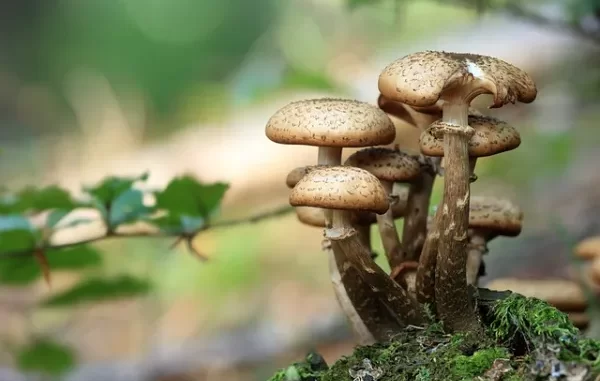
Uncovering Fascinating Fun Facts about Fungi
Fungi are a fascinating group of organisms found in nearly every environment on Earth. They are incredibly diverse, both in their physical forms and in the ways they interact with other organisms. Here are just a few of the fascinating facts about fungi that you may not know.
First, fungi can be found in almost every type of environment, from deserts to oceans. They are both decomposers and predators, meaning they can break down decaying matter and capture and consume living organisms. They are also essential for the health of ecosystems, as they break down organic matter and release nutrients that other organisms need for growth.
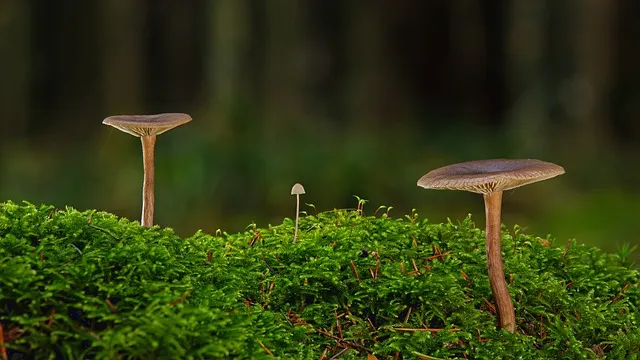
Second, fungi reproduce both sexually and asexually. In some species, spores are released and spread far and wide. Other species form networks of mycelium, which are specialized structures that can extend for miles. This allows them to communicate and share resources with other fungi.
Third, fungi are important to human health. For example, some species of fungi produce antibiotics that are used to treat bacterial infections. Fungi are also being explored as a potential source of new drugs to treat cancer and other diseases.
Finally, some species of fungi can grow extremely quickly. A single mushroom can double its size overnight, while some species of yeast can double their population in less than an hour. This makes fungi an important tool for food production and biotechnology.
These are just a few of the amazing facts about fungi. From their ability to survive in extreme environments to their potential to produce new drugs, fungi are an incredibly diverse and fascinating group of organisms.
What You Didn’t Know About Fungi: The Unseen Wonders of Nature
Fungi are one of the most fascinating and least understood organisms in nature. From the giant puffball mushroom to the microscopic yeast cells that make bread dough rise, fungi are some of the most diverse and complex life forms on the planet. Here are some of the amazing facts you may not know about these unseen wonders of nature.
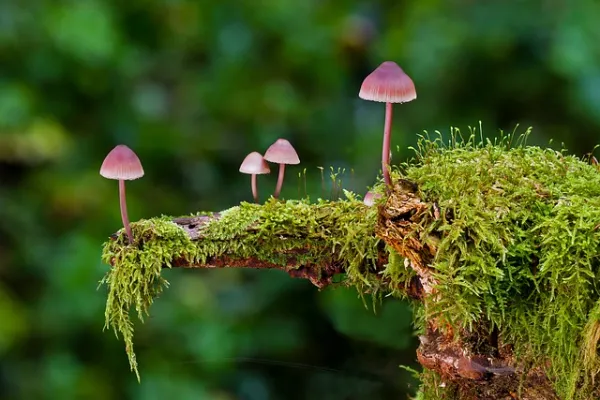
First, fungi are not plants. Although they may look and act like plants, they are not related to them at all. Fungi are their own unique kingdom of life that share more in common with animals than plants.
Second, fungi are incredibly important to the health of our ecosystems. Fungi break down dead organic matter which helps to return plant and animal nutrients back into the soil. Without fungi, the cycle of life would be disrupted as dead matter would just accumulate.
Third, fungi can actually be used to clean up toxic heavy metals from our environment. Certain species of fungi have evolved to absorb metals like lead and arsenic from polluted soils.
Fourth, fungi can also be used to produce food. Yeast, for example, is a type of fungus used in baking and brewing, and certain species of fungi are edible and have been used as a food source for centuries.
Finally, fungi play a crucial role in medicine. Penicillin, the world’s first antibiotic, was discovered in a fungus, and many compounds derived from fungi are used to treat serious medical conditions such as cancer and HIV.
Fungi are truly amazing organisms that have many uses in our world. From helping to clean up the environment, to producing food, to providing medicines for treating serious illnesses, they are one of nature’s most invaluable resources.
Unusual and Fun Facts about Fungi to Surprise You
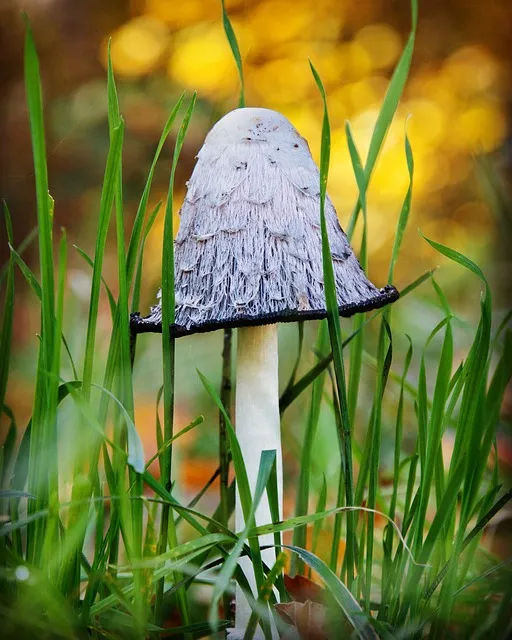
Fungi are fascinating organisms that are often overlooked or misunderstood. Here are some fun and unusual facts about fungi to surprise you:
- Fungi are one of the most diverse group of organisms on the planet, with over 100,000 species known to science.
- Fungi are essential to the environment as they play an important role in decomposition processes, releasing nutrients back into the soil.
- Fungi can form beneficial relationships with other organisms, such as trees. This is called “mycorrhizal symbiosis” and helps trees to more effectively absorb water and nutrients from the soil.
- Fungi can be used to produce a variety of foods, including cheeses, breads, and beers.
- Fungi are used in medicine to produce antibiotics and antifungal drugs.
- Some fungi can even produce electricity, a process known as “electrogenesis.”
- Fungi can form huge networks underground, known as “mycelial mats,” which are made up of the microscopic hyphae of the fungi.
- Fungi are the oldest organisms to produce mushrooms, which are actually the fruiting bodies of the fungi.
- Not all fungi are visible to the naked eye; some are single-celled organisms called “yeasts.”
- Fungi are a key part of the food chain, providing food for animals and humans alike.
10 Fascinating Facts About Fungi You Never Knew
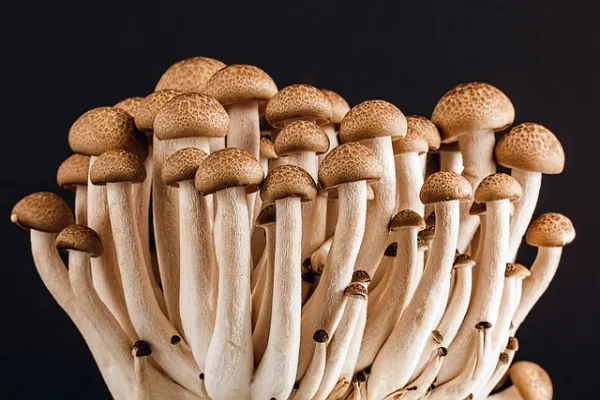
- Fungi are not plants, but their own unique kingdom. They are neither plant nor animal, but have characteristics of both.
- Fungi are essential to all life on Earth. They are responsible for breaking down organic material to release nutrients for other organisms.
- Fungi are the oldest organisms on Earth; they have been around for over 1.5 billion years.
- Fungi can live in almost any environment, from deserts and oceans to the air around us.
- Fungi play an important role in agriculture, breaking down crop residue and helping to increase soil fertility.
- Fungi are used to make some of the food we eat, such as bread, beer, and cheese.
- Fungi can cause disease in both plants and animals.
- Fungi are used to make antibiotics, which are used to treat bacterial infections.
- Fungi can form symbiotic relationships with other organisms, such as mycorrhizal associations with plants.
- Fungi are also important sources of food for some animals, including slugs, snails, and some insect larvae.
Amazing Facts about Fungi: Exploring the Unknown
Fungi are some of the most mysterious organisms on Earth. Despite their prevalence in nature, many aspects of fungi remain mysterious and unknown. Here are some interesting facts about fungi that may surprise you.
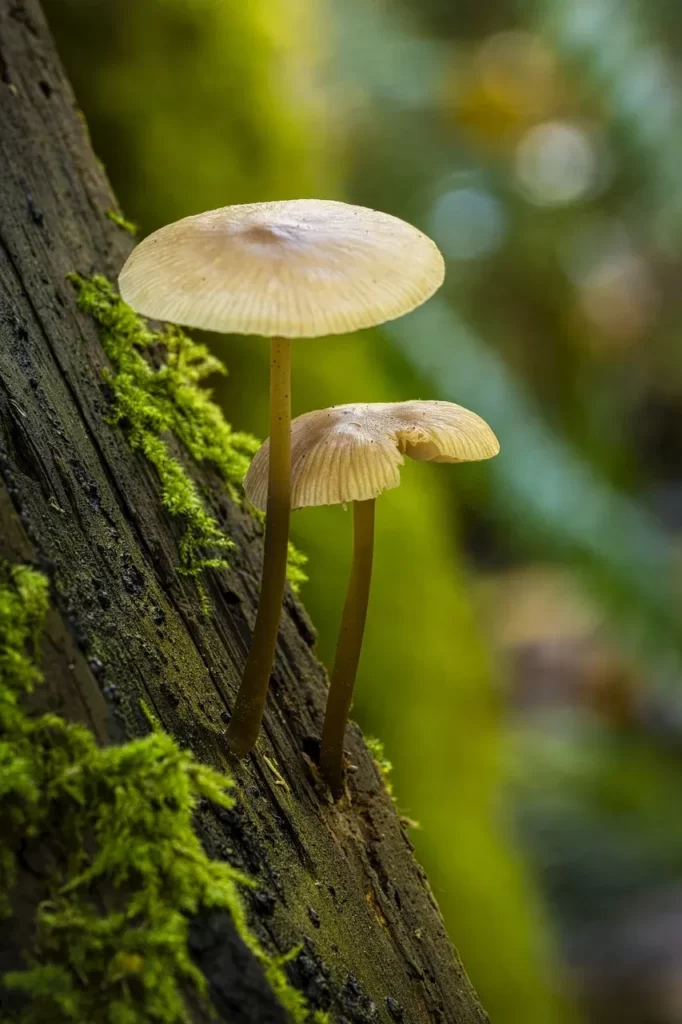
- Fungi can be found in almost all ecosystems on the planet, from the arctic tundra to tropical rainforests.
- Fungi are not plants or animals. They are members of their own kingdom and have evolved separately from plants and animals.
- Fungi are responsible for breaking down dead organic matter and turning it into soil.
- Some fungi can produce their own food through photosynthesis, much like plants do.
- Fungi are used in the production of food and medicine. For example, Penicillin, one of the first antibiotics, is produced through the fermentation of a fungus.
- Fungi can form very large networks underground, called mycelium. These networks can span acres of land and are capable of exchanging nutrients and energy between different fungi.
- Fungi can live on a variety of substrates, including wood, soil, and even air.
- Fungi can form symbiotic relationships with other organisms, such as trees and other plants.
- Fungi can cause diseases in plants, animals, and even humans.
- Fungi are essential in the cycling of nutrients in the environment.
Fungi are an incredibly diverse group of organisms that play important roles in our environment. From providing medicine to aiding in the decomposition of organic matter, fungi are an integral part of the global ecosystem. We still have a lot to learn about these mysterious organisms, but the facts we’ve learned so far are certainly fascinating.






Leave a Reply